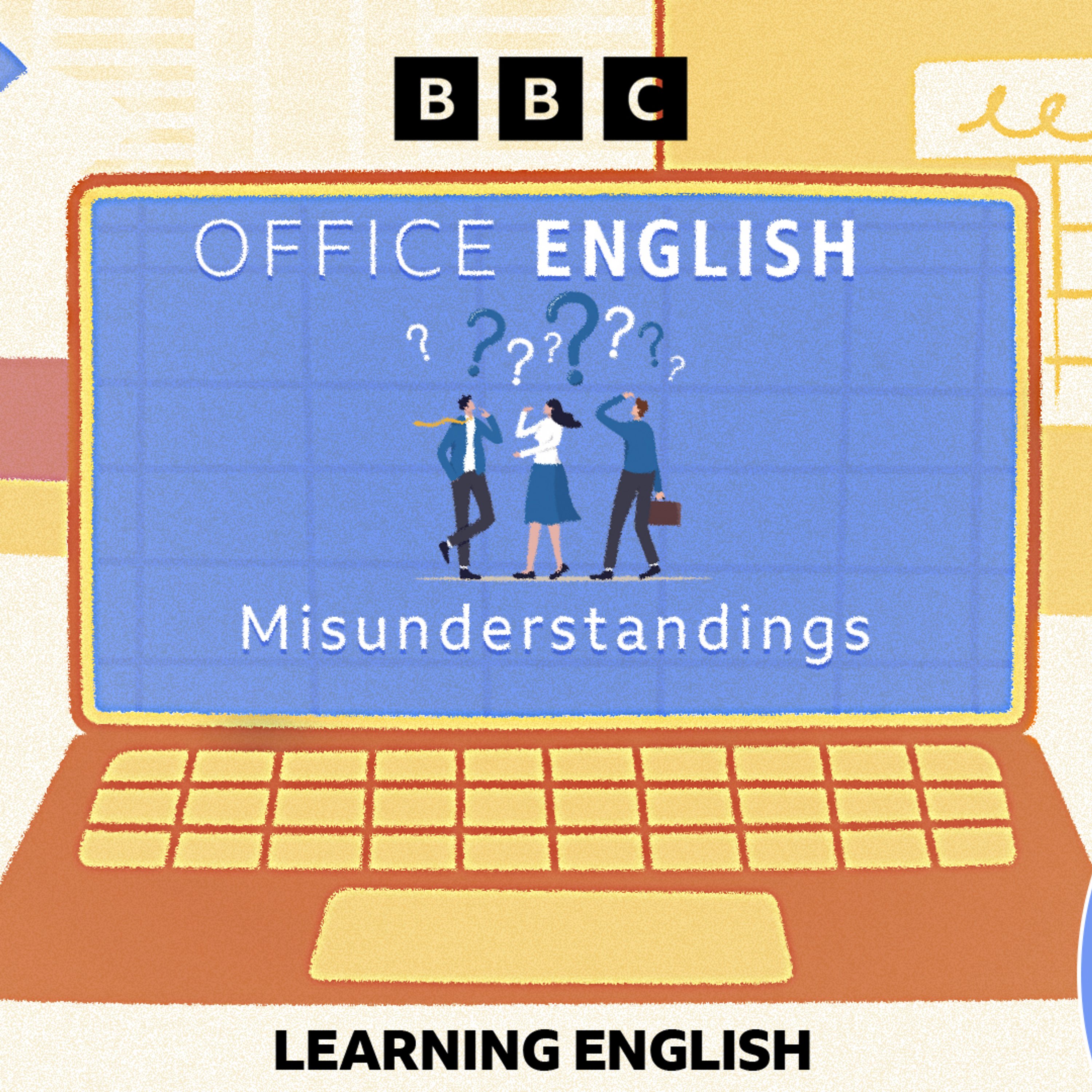
Deep Dive
Shownotes Transcript
Do you ever find you don't understand people at work? If I don't understand a task at work, I feel frustrated. It can be a bit stressful. It's really annoying and you have to ask other people to help you with something. Nobody likes to keep asking how to do something, so you can end up feeling a bit stupid, really. In today's episode of Office English, we're talking about what to say when you don't understand.
Hello and welcome to Office English. In this series we talk about the language you need in the modern workplace. I'm Phil. And I'm Pippa. Find a transcript for this podcast on our website bbclearningenglish.com. We've just heard from some of our BBC Learning English colleagues that it can be frustrating and embarrassing when there are misunderstandings at work. Is that something you've experienced, Pippa?
Yes, I think it can feel quite awkward if you realise that you and a colleague have interpreted something in a different way. Sometimes it just is annoying because it leads to kind of wasted time, wasted effort sometimes.
It can lead to conflict, not in my experience. Usually, you know, we just said, oh, we've got our wires crossed there and we've misunderstood each other. It can depend what the misunderstanding is about, of course. If we're thinking about conflict, some misunderstandings might be more dangerous than others. Today, we're going to talk about what to do when you don't understand or when you think someone might have misunderstood you.
Let's start with a scenario, Phil. So imagine your boss has given you a task to do, but you're not sure if you've understood them correctly. You don't want to do the task wrong, but you also don't want your boss to think you're not good enough, you're a bit stupid. What should you say to them? You could just ask them to explain it again. You know, can I just check that I've understood that right? Yeah.
Yeah, that's nice because it's still polite. You could also say, oh, I'm sorry, but could I just clarify? I think people would usually rather explain it more times and it'd be done right than think you have understood them and then you do it wrong because that actually is going to waste more time.
What about if somebody can't ask their boss? Maybe they're just not able to or they're a bit worried to ask for a clarification from their boss. What would you recommend then? It might be that you've got a colleague who's really experienced in that area and you're confident that they know what they're talking about. So you could always ask them.
Yeah, you could say something like, can you walk me through how you usually do this? And then you've just made sure that you're understanding the process. This is particularly useful if you're new, I guess.
Sometimes I think it can also be useful to know why you're doing something that can help avoid misunderstanding. So you might be asked something like, are we doing this because... and then giving what you think is the reason for something. Yeah, it will depend on your kind of workplace culture, where you work and the kind of thing you've been asked to do. Some places it's not normal to kind of question your boss. You wouldn't want to kind of give the impression that
you think you know better or you have kind of thought that they're wrong so it's just about kind of clarifying rather than kind of questioning the whole task altogether. Music
OK, so that's some ideas for when you don't understand your boss. What about if you don't understand something that a colleague says? For example, you might be in a meeting and a colleague makes a contribution, but you don't understand what they mean. Yeah, that's a tricky one, I think. I would often start with an apology. So I might say, I'm sorry, Phil, but could you explain that a little bit more and just get you to kind of tell me more about it? Yeah, or another way of saying it is,
I'm not sure I follow you. Can you just talk me through that again? Another phrase you could use is, I just want to be sure I've got you 100% right. Do you mean, and then again, explain what you think they've said. So then you're just kind of checking that you're both interpreting what's been said in the same way.
Right, we've talked about lots of things we can say when we don't understand other people at work. But what if we think somebody doesn't understand us, Phil? Well, we can always ask other people, does that make sense? Or invite questions, maybe. Yeah, sometimes I'll say things like, if any of this is confusing, just let me know or just shout. I would put that in an email as well often. If I've sent a really long email with lots of complicated instructions, I'd usually...
end with if any of this doesn't make any sense let me know because sometimes it makes sense to you but you maybe haven't explained it as well as you could have done also yeah sometimes you might want to say things in different ways particularly I don't know you're in a meeting explaining something and you can see lots of blank faces or you're getting the feeling that people haven't understood exactly what you said you might say
Let me make myself really clear. What I mean is, and then you find a different way to explain what you've just said. Yeah. So rather than just using the same language all the time, particularly, I guess, in an international workplace where people are speaking English as their second language,
You kind of want to use a few different ways of saying it so that you make sure that everyone knows what you're talking about. And maybe in that kind of workplace, trying not to use a lot of very complicated language, trying to keep things very simple and very clear. So we have lots of ways we can try and avoid confusion and misunderstandings at work. But sometimes they happen. Let's listen to our BBC colleagues, Neil and Beth again.
It's not a problem that you have misunderstood. It's just it's got to be explained. I think, first of all, you have to draw attention to the fact there has been a misunderstanding.
then you have to explain how you saw something from your perspective and then maybe that will reveal why a misunderstanding happened and that helps to get it all smoothed out. So, yeah, as we mentioned at the start of the programme, if there's been a misunderstanding, sometimes it can lead to conflict. Sometimes maybe someone's misunderstood someone, they've become offended, but also it just might mean that somebody's ended up doing something
Yeah, and it can also often be best to deal with the consequences of the misunderstanding first, rather than, you know, getting angry and blaming people.
sort out the issue first. Yes, and then once you've dealt with the consequences, it can be useful to know why the misunderstanding happened, but you probably want to focus on why it happened and making sure that in the future you avoid the miscommunication.
That's it for this episode of Office English. We'd love to hear about the English you use in the office and answer your questions. Email learningenglish at bbc.co.uk. Next time, we're going to talk about cold calling, which is where you have to contact people you don't know at work. Oh, I hate cold calling, but I'm looking forward to talking about it. See you then. Bye. Bye.
Hello, it's Beth and Georgie. We want to tell you about our new series, The Pronunciation Lounge. Want to improve your pronunciation and speaking skills? Learn how to hear, recognise and produce sounds in English with this video series.
What's the difference between British and American accents? What's the most common sound in English? And what have you got to practice to sound more natural in English? All episodes are available now on our website, bbclearningenglish.com.
